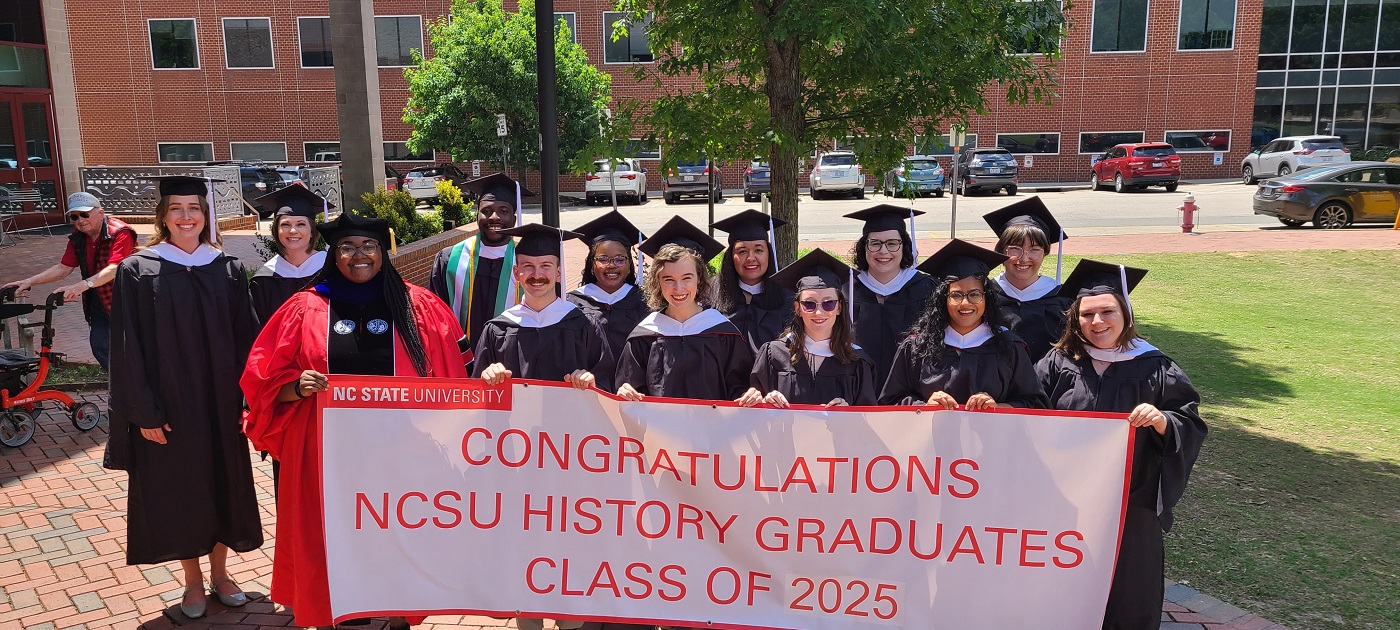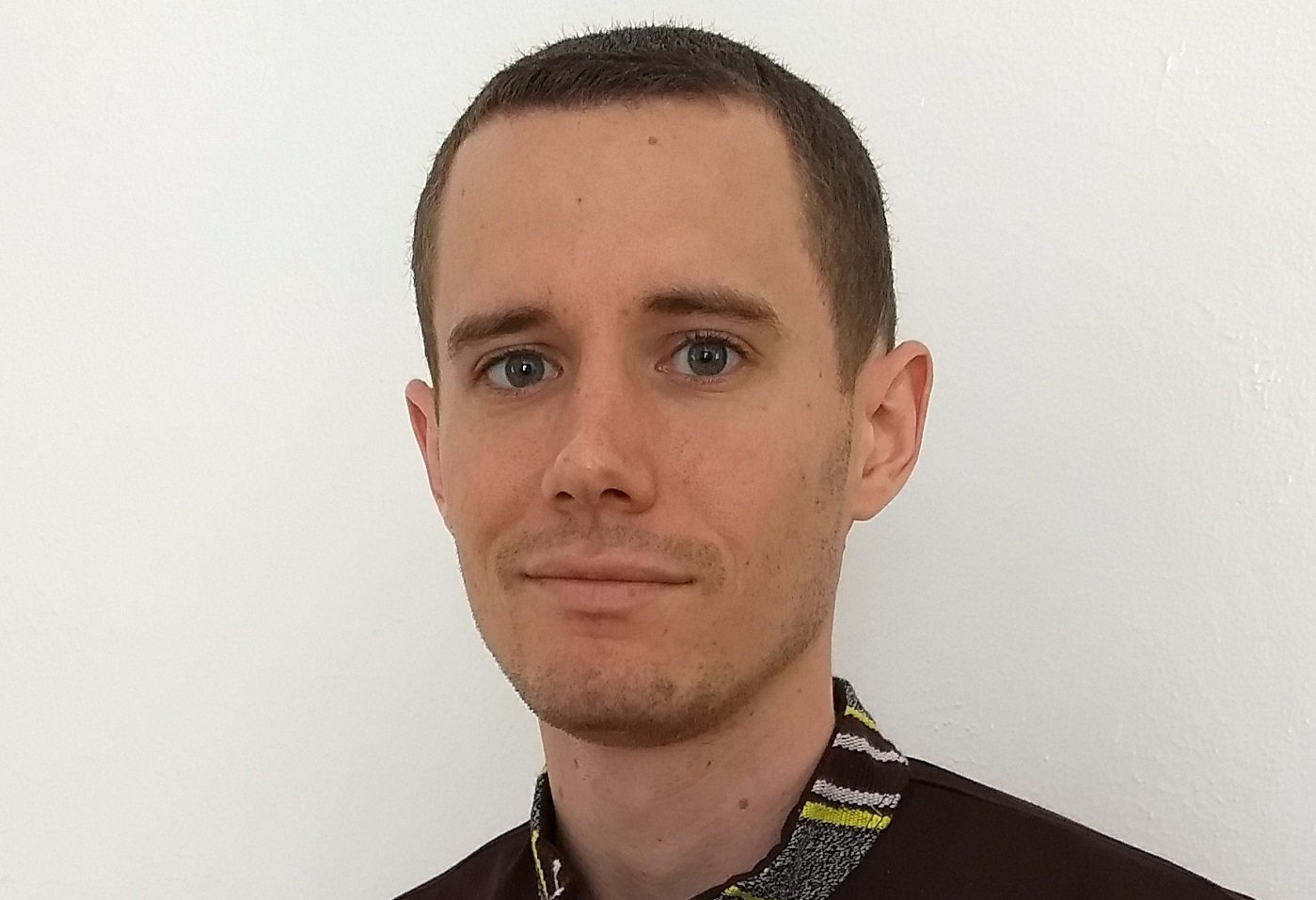Reports from the Field: Public History Graduate Students Attend the Annual Meeting for the National Council on Public History (NCPH)
In April 2017, several NC State public history students attended the NCPH annual meeting in Indianapolis, Indiana. The following interview provides the perspectives of two student attendees, Katie Schinabeck and Lisa Withers. Both individuals are doctoral students in the public history program at NC State.
What was your poster about? How does it relate to your field of interest?
Katie- My poster was about a project I conducted for the Newport Historical Society last summer. The project itself was a sort of “choose your own adventure” about the decisions that colonial Newporters made during the American Revolution. My poster was about both the project itself and how it was made. I wanted to show public history practitioners how they can do this kind of project, but I also emphasized the more theoretical considerations involved and made the argument that these projects need to be strongly informed by historical scholarship and research in order to be effective. That’s what makes it an educational tool, as opposed to a “which historical character are you” type of internet quiz.
Lisa- I co-presented a poster with Dr. Alicia McGill and Hannah Scruggs on our work in Belize in summer 2016. Over the course of six weeks, we collaborated with Belizean and American students, scholars, and practitioners in public history, anthropology, heritage studies, and archeology as well as the youth, elders, and community leaders in Crooked Tree and Biscayne Villages on an international, community-based field experience. Our team worked with residents to understand the community’s culture, heritage, and history. The knowledge gained was used to curate an exhibit and to develop a curriculum guide for the schools. Our project also served as a platform to determine how the field school model could be incorporated into public history graduate education. Our project and the poster reflect my interests in how the practice of public history differs in various countries and different models are used for community-engagement.
How did people respond to your poster?
Katie- I was really pleased with how people responded to my poster. I think that people who came by had a keen sense of the educational potential for these kinds of projects. I was also excited to meet someone who had used my project in her undergraduate classes. People also had a lot of questions about what kind of digital tools are available for these projects, so I was glad that I included that in the poster.
Lisa- I felt we had an overall positive response to our poster and several conference attendees expressed interest in our project. We responded to quite a few inquiries regarding our methodologies, end products, outcomes, and project logistics. Our poster also helped to spark conversations about public history in an international context.
Did you meet scholars who did similar work as you?
Katie- It was a great opportunity to meet people who are doing similar work to what I’m doing. I was very excited about a working group on mediating the Early American past for public history audiences, since I’m most interested in Early American public history.
Lisa- Cathy Stanton, author of The Lowell Experiment: Public History in a Postindustrial City, stopped by our poster. It was exciting to speak with Dr. Stanton as her work also incorporates different disciplines to answer key questions about public history and heritage work. I also had the opportunity to network with colleagues who focus on African American public history and those who wrestle with questions of how scholars and practitioners can interact with various audiences using different mediums for engagement.
What was the best presentation you attended?
Katie- I went to a presentation on gamification and history that I LOVED. Since the project I presented on is technically a gamification project, it was great to hear a discussion of a lot of the same problems and thoughts I had when working on my projects. It was also a great presentation because the presenters made it really fun. After presenting on some theory and tools for gamification, we all tested some historical games (both digital and board games) and came back together for a discussion. It isn’t easy to make conference presentations interactive in that way, but they did it flawlessly.
Lisa- One of the sessions I attended examined the potential for intersections between film and history. I enjoyed this session because we it explored how film, as a medium, can help move the work of public historians forward and looked at issues that could potentially hinder the two fields from working together to meet common objectives. It is encouraging to meet individuals who also think about how various audiences interact with history and how that can be strengthened with diverse mediums and formats.
How does a national conference compare to more local conferences you’ve attended?
Lisa- Since 2013, I have had the opportunity to attend workshops and conferences on the local, state, regional, and national levels. The biggest difference tends to be the attendance size and the need for different networking strategies. Local workshops and state conferences provide the opportunity to get to know what is happening in your area. These professional development opportunities tend to be smaller and they often open doors to become more intimately acquainted with nearby institutions and colleagues, which is helpful for students learning the field, looking for mentors practicing in the field, and looking for internships and/or volunteer opportunities nearby. Because these events tend to be small, attendees often leave having met everyone, or at least a high percentage of everyone, at the event. The event coordinators generally provide a list of individuals who attended with contact information to encourage post-event networking. Additionally, local and state events create a space for colleagues to address unique common problems specific to their area. What might be an issue facing museums and historic sites in North Carolina might not be an issue in Mississippi, Vermont, Oklahoma, Oregon, or New Mexico and vice versa. I have found it helpful to attend local and state events ready to shake hands, to provide an elevator pitch of what I’m looking to do in the field, to exchange business cards, and to take notes during session conversations to get the most out of the experience.
Conferences at the regional and national level provide an opportunity to cast a wider net in the networking scene, geographically speaking. Attendees also can get a sense as to what is happening in the field within the region and across the nation. Regional and national conferences tend to make programs available months in advance.
The 2018 NCPH meeting will take place April 18-21 in Las Vegas, Nevada.
- Categories:


